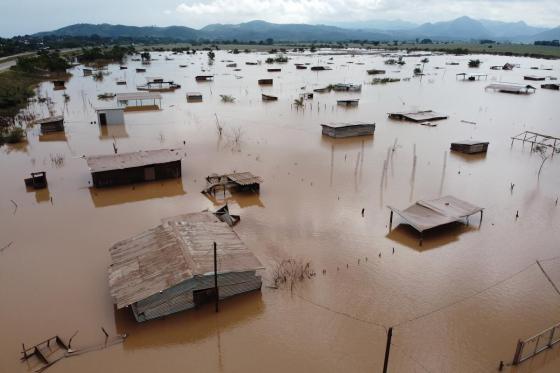Climate Change for A Better World

Photo: Sean Hawkey.
The author is the Chairperson, Vision Liberia 2030; and National Advisor on Climate Change, 2016.
With the United Nations Framework Conference on Climate Change (UNFCCC) hosting of the 26th Conference of Partners (COP26), scheduled to be held in Glasgow, Scotland from October 31 to November 12, 2021, it is most important to raise mass awareness about the danger of climate change and how to end this danger to make the world a better place in which to live. Local and global concerns about climate change emerged decades ago.
With concerns about the danger of climate change, the Intergovernmental Panel on Climate Change (IPCC) was established and began issuing regular reports, beginning in 1990. By 1992, the United Nations Conference on Environment and Development (UNCED) was held in Rio de Janeiro, Brazil, and ratified the Framework Convention on Climate Change (FCCC). In 1997, the Climate Change Protocol was signed in Kyoto, Japan, and became known as the Kyoto Protocol. Out of the 1997 Conference came the Conference of Partners of the Kyoto Protocol (CMP), with CMP1 being held in 2005 in Montreal Canada at COP11. The first Conference of Partners (COP) was held in Berlin, Germany in 1995, making it COP1. The Conference of Partners is held annually and it has been held in various countries of Africa, Asia, Europe, and the Americas.
In 2015, the Path Breaking Conference of Partners (COP21) was held in Paris, France, where the Global Community of nearly 200 countries was in one Accord with the signing of an Agreement at the Conference hosted by the UNFCCC. As the main concern about climate change relates to the greenhouse gas emissions of the pollutant carbon dioxide (CO2), the Paris Agreement calls for a reduction in the emissions to 1.5 degrees celsius (1.5c), approximately 50 percent, by 2030 and net zero by 2050. The commitment to this Accord is seen in the pledge of the Nationally Determined Contributions (NDC) by each member country.
The NDC makes an update every five years, with the next one due this year in advance of COP26. The pollutant CO2, unlike other pollutants, spreads globally when its emissions begin locally. Therefore, CO2 is a global problem. Additional climate change-related global problems are deforestation, sea erosion, sand mining, and wetlands. Realizing the global nature of the climate change problem, the United Nations has declared April 22nd every year to be Earth Day. Climate change and Corona are the two most vexing problems in the Addresses of the Heads of State at the current United Nations General Assembly.
The United States of America (USA) and the People's Republic of China (PRC) remain the world's largest emissions of CO2. In the USA, the transport sector accounts for 29 per cent of the emissions and the electricity sector accounts for 25 per cent of the emissions, with the latter being more difficult to decarbonize. In 2020, 278 gigawatts of renewable energy was added to global climate, a 45 per cent increase over 2019, the biggest increase since 1999, with the PRC accounting for 80 per cent of the annual installation in 2019 and 2020. A decade ago, I was in the PRC where I served as Chairperson of the African Group in the Conference of Africa-PRC Development Experience. The climate change problem figured prominently at the Conference.
In my National Advisor on Climate Change capacity, I accompanied President Ellen Johnson Sirleaf in 2016 to Marrakech, Morocco for CO22. There in Morocco, the Partners recommitted themselves to meeting the goal of 1.5c, as agreed upon at COP21. The USA former Secretary of State and now USA Climate Change Envoy John Kerry was at COP22 promoting the Climate Change Agreement made at COP21. The Conference of Partners of the Paris Agreement (CMA) began meeting in 2016 at the CO22. Although the Donald Trump Administration opted out of the Paris Agreement, the USA in the President Joseph Biden Administration is promoting the Agreement.
Like any agreement, the Paris Agreement can be implemented only by using scientific knowledge to raise awareness in ways that motivate people to take actions through the Rule of Law to change the greed-driven actions that drive up the CO2 emissions to bring in the need-driven actions that can bring down the CO2 emissions to 1.5c and below.

